9.2 HLTH 3056 Community Professional Practice Expectations & Requirements
All shifts are pre-scheduled in the HLTH-3056 Community Professional Practice course. They are pre-arranged and approved by both the agency and the Placement Coordinator in advance of your placement experience. Changes can not be made to any student’s schedule without prior approval from the Clinical Advisor, agency scheduler, Placement Coordinator, and the PSW Program Coordinator. It is therefore very important to attend all scheduled shifts.
HLTH 3056 Community Professional Practice Course
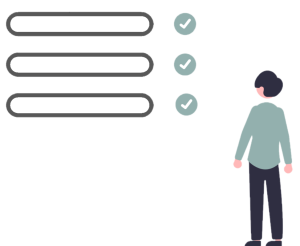 Upon successful completion of the HLTH 3056 Community Professional Practice course, you will be able to:
Upon successful completion of the HLTH 3056 Community Professional Practice course, you will be able to:
- Promote the worth and dignity of each client.
- Demonstrate an understanding of the client’s needs.
- Provide care to meet the client’s needs.
- Maintain a safe and comfortable environment in client care.
- Assist the client in a manner that promotes independence and well-being.
- Assists with household management in a safe manner that is in accordance with the client’s preferences.
- Provides support and assistance to the client who is dying and to their family.
- Recognize the worth of family caregivers and work with them in a supportive manner.
- Communicate effectively both verbally and nonverbally.
- Observe and report accurately.
- Document in accordance with agency policy.
- Participate as a member of the interprofessional healthcare team and contribute to the care plan.
- Demonstrate competence in all Domains of Practice Competencies (see Chapter 2).
- Demonstrate honesty and integrity in all aspects of care and communication.
Clinical Learning in Practice

During the Community Professional Practice Placement, you are expected to actively participate in client care and foster self-directed learning. This clinical experience will provide you with opportunities to work with other allied healthcare team members, with an increase in independence and less supervision by the Clinical Advisor. The Clinical Advisor will check in with you and your PSW Preceptor frequently and will be on call to you, the Preceptor, and agency staff should any concerns arise. It is very important to know who your Clinical Advisor is and to have their contact information. This information is provided by the Fanshawe College Placement Coordinator.
You will be assigned a PSW Preceptor by the Community agency. Make sure to connect with your preceptor prior to day one to adequately prepare for your first shift. You can collaborate with your Clinical Advisor in advance of your shift to help you organize and prepare.

Timesheets
During your Community experience, you will maintain a timesheet to record all your completed shifts. This timesheet is to be initialled by your PSW Preceptor at the start and completion of each shift. You will need to indicate the hours worked after each shift is completed.
Timesheets are to be treated as a legal document are are not to be altered in any way. Any necessary corrections are to be made using a single line only (review documentation requirements from your first semester courses).
| Monday | Hours & Initial |
|---|---|
| Date: Feb 4, 2025 In: 0700h Out: 1500h |
8 hr Preceptor: KR Student: KP |
Consult the following timesheet table or the downloadable documents to understand how you should be documenting your hours.
| Week | Unit | Mon. | Tues. | Wed. | Thur. | Fri. | Sat. | Sun. |
|---|---|---|---|---|---|---|---|---|
| Week 1 | XX | May 1 | May 2 | May 3 | May 4 | |||
| D | D | D | D | |||||
| Week 2 | May 8 | May 10 | May 13 | May 14 | ||||
| E | E | N | N | |||||
| Week 3 | May 15 | May 16 | May 17 | |||||
| E | E | E |

Downloadable Documents for Students

Downloadable Documents for Instructors
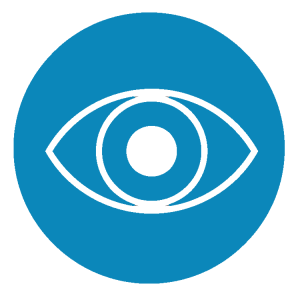
Students must keep track of the hours of each shift, as they may vary from agency to agency and student to student. Once schedules are posted, students are NOT allowed to change their schedule without prior permission and approval from the agency, the PSW Program Coordinator and the Clinical Advisor. Each shift (8 hours) counts as 7.5 hours. A total of 120 hours is required (these may consist of 8 or 12-hour shifts).
PSW Community Professional Practice Guidelines and Expectations
The following section summarizes guidelines and expectations for your Community Professional Practice Placement.
During your HLTH 3056 placement, you may complete day, afternoon, evening, and night shifts.
General
All clinical placements are subject to availability, and it may be necessary to assign you to community agencies in an outlying community. You may be expected to travel to your placement, which may not always be accessible by public transportation. You are expected to make your own travel arrangements to all assigned community agencies. You will be assigned a variety of shifts over the course of your placement including day, evening, and night shifts.
![]()
Cell phones are NOT allowed to be carried at placement, except during your pre-assigned breaks. Cell phones should be stored with your belongings.
Because the opportunity exists to take unauthorized photos while attending placement, if you are found to have a cell phone with you during client care, you will be asked to leave the agency and will be marked absent that day.
Safety

The provision of client care in the community setting is time sensitive and may cause safety concerns for the client(s) involved if client care cannot be performed in a reasonable length of time. As such, it may be an unsafe practice to accommodate for extra time when you:
a) Perform physical care to clients or,
b) Document client care, which needs to be completed promptly in the community setting.
Due to the risk of re-injury or injuring clients, you are not permitted to arrive at the clinical agency with pre-existing injuries. There will be no “light duty” provision or accommodation for injuries at any time. A doctor’s note may be required in order to be permitted to return to the clinical placement.
If you are deemed UNSAFE in your practice, you will be asked to leave the clinical agency immediately and may be either given a failing grade for that course or be dismissed from the PSW program.
Examples of UNSAFE behaviours may include (but are not limited to) the following:
- Failure to follow expected safety guidelines while performing any lifts, transfers, or personal care.
- Failure to provide reasonable care in order to prevent harm to the client.
- Any action — or lack of action — that results in jeopardizing the safety, dignity, and/or sense of well-being of any client or worker or other students.
Communication & Professionalism
 It is important to communicate with clients, staff, interprofessional healthcare providers, instructors, and peers in a professional manner in order to provide care that is safe, effective, and appropriate. If you are unable to communicate, listen, understand, and respond effectively, you may be deemed unsatisfactory in your Community Professional Practice Placement.
It is important to communicate with clients, staff, interprofessional healthcare providers, instructors, and peers in a professional manner in order to provide care that is safe, effective, and appropriate. If you are unable to communicate, listen, understand, and respond effectively, you may be deemed unsatisfactory in your Community Professional Practice Placement.
Confidentiality
To protect client privacy and maintain professional standards:
- Sharing any identifiable client or family information, including photos, is strictly prohibited. Names must never appear in assignments or journals.
- All client-related materials (e.g., data collection tools) must be securely destroyed or permanently deleted/shredded at the end of the placement.
- Posting any content related to the agency, clients, assignments, or colleagues on social media is not allowed and may result in failure of the clinical course.
Attendance

Students are required to meet all course outcomes and Domains of Practice Competencies in all clinical courses. Attendance and satisfactory performance are required to effectively evaluate skills and allow students time to practice and incorporate feedback. Personal commitments such as vacations, childcare, or employment are not considered valid reasons for missing clinical time and may jeopardize course completion and result in being unsuccessful in the course.
After a second absence—regardless of the reason—a Collaborative Success Plan (CSP) will be developed with the Clinical Advisor. Failure to meet the expectations outlined in the CSP may result in an unsatisfactory grade for the course (Appendix D: PSW Student Collaborative Success Plan).
In the event that an absence is unavoidable, you will need to notify the PSW Preceptor, the agency, and the Fanshawe College Clinical Advisor a at least one hour before the start of your community placement shift.
Inclement weather
If travelling in bad weather conditions means you can not safely attend placement, notify the PSW preceptor, the agency and the Fanshawe College Clinical Advisor at least an hour prior to the start of the shift; failure to do so would result in being marked absent and being required to make that day up during Clinical Consolidation Placement (HLTH 3055).
You will not be permitted to leave the community agency property during your assigned clinical hours. If you leave the property during your clinical placement shift, it is unsafe and may impact your success in the course. A Collaborative Success Plan will be initiated.
Uniforms
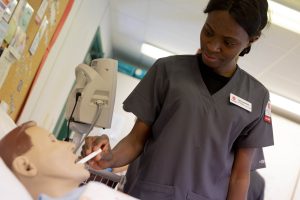
Fanshawe College’s PSW Student Dress code has been created to project professionalism and to follow health and safety policies for both Fanshawe College and the Professional Practice Agencies. Anyone who refuses to comply with this uniform policy will be asked to leave the Community Placement sites, and a follow-up discussion will take place with the Program Coordinator. This may lead to being unsuccessful in the course.
Uniforms or scrubs need to be worn for all lab practice classes, as well as at the Community Placement sites. Pants must be hemmed appropriately and not rolled up or taped into place. Sweaters are not permitted at any time over the uniform. Long-sleeved shirts may be allowed to be worn under the uniform in special circumstances only.
Crests
All uniforms must have the Fanshawe College PSW crest securely attached to the outermost portion of a uniform’s left sleeve. Crests cannot be attached to uniforms by the use of staples or pins.
Name tags
Fanshawe College identification name tags are to be visible at all times, worn on the front left side of the uniform, high enough to prevent client injury when administering care. They must be worn for all lab practice classes and Placement Sites.
Clinical Placement Shoes
White or black, clean, supportive shoes must be worn (no canvas running shoes, sling backs, sandals, open toes or open heels). Shoes are not to be worn to or from the lab or Community Placement sites.
Jewellery
Body jewellery poses a Workplace Health and Safety risk and can not be worn.
- No visible body piercings.
- Only one plain stud earring in each ear is acceptable.
- No hoops or rings allowed in any visible body area.
- No necklaces, they can be pulled or used to strangle.
- You can wear one plain wedding band.
- Do not wear a watch on your wrist; instead, have a watch pinned to your uniform.
Scents
Due to the increasing risk of allergic reactions and sensitivities, no perfumes, colognes or body sprays are allowed in either lab or clinical practice settings.
Nails
Do not have long fingernails, nail polish, or artificial nails as they pose a Workplace Health and Safety risk (both physical safety and risk for pathogenic transfer).
Hair
Hair must be neat, contained, and worn off the face and collar. Braids/ ponytails must be secured and off the collar.
Facial Hair
Male students must be clean-shaven. If beards or moustaches are worn, they must be neatly trimmed and be professional in appearance. Consult with your Clinical Advisor and follow your community placement agency’s Infection Control policies and Occupational Health guidelines. Facial hair may impact the efficiency and use of the N95 mask.
No gum chewing while in the lab or clinical practice settings.
Evaluation
In order to graduate from the PSW program, you will need to be satisfactory in completing all three clinical courses of the PSW program.
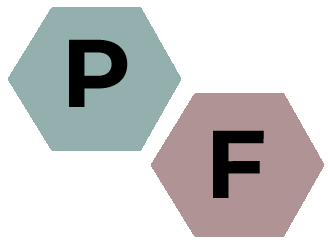
The final grade will be determined as either a P = pass or an F = fail
You are expected to attend all of the shifts required during your Professional Practice Placement experiences in order to be successful in the courses. Absences during your placement course may result in an unsatisfactory grade. Your progress will be monitored through ongoing evaluation.
Progress is assessed on the basis of client care. The PSW Preceptor and your assigned Fanshawe College Clinical Advisor will provide ongoing feedback and complete the practice evaluation at the middle and end of the term with you. A Collaborative Success Plan (see Appendix D) may be initiated between you and the Clinical Advisor, in consultation with the PSW Program Coordinator, if unprofessional behaviours are displayed and professional practice domains are not being met.

Meeting, discussing, and creating a CSP with your Clinical Advisor will provide you with feedback and assist you in developing strategies to strive towards success in the course (A CSP is not meant to be punitive). Examples of CSP initiation may include: repeated absenteeism, late arrivals, unprofessional or safety concerns, concerns in any of the Domains of Practice Competencies.
Clinical Professional Practice evaluation for the HLTH 3056 Community Professional Practice course is based on your performance of the course competencies, and completion of:
- Attendance
- Appropriate and Professional Behaviour at all times.
- Professional communication with PSW Preceptor and Clinical Advisor, reviewing Domains of Practice and progression in the course each shift.
- Demonstration of satisfactory progression in all five Domains of Practice (see Chapter 5.2).
- Completion of Domains of Practice Competencies on the final evaluation forms and a satisfactory grade in each of the five domains of practice (see Chapter 5.2).
- Submission of timesheet – indicating completion of the correct number of hours, signed and dated by both the PSW Preceptor and Clinical Advisor.
- Satisfactory and timely completion of weekly reflective practice online discussion posts in the HLTH 3056 Community Practice ONLINE modules (see Chapter 10).
- Satisfactory and timely completion of weekly online quizzes in the HLTH 3056 Community Practice ONLINE modules (see Chapter 10).
At the end of the HLTH 3056 Clinical Professional Practice Community Placement, the PSW preceptor, the Clinical Advisor (Fanshawe faculty), and you (the PSW student) will meet and discuss your final evaluation. You will need to submit your final self-evaluation (Appendix H) to the Clinical Advisor at this meeting. It may also be acceptable to complete the final evaluation with your assigned preceptor and bring it to review at your meeting with the Fanshawe College Clinical Advisor. Ensure to include your completed timesheet and that all evaluation pages are signed, initialled, and complete, including examples from your placement experiences.
Note from Fanshawe College PSW Program
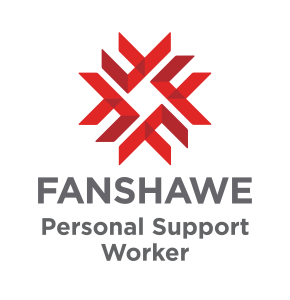
The College may terminate a student’s enrolment in a course or registration in a program at any time where the student’s performance in any academic setting is deemed to be detrimental to self, others or the College. Detrimental performance is determined by any of the following: unsafe practice for self and/or others, interference with the progress of other students, unethical/unprofessional practice, and prolonged or frequent absence. Termination in the form of either suspension or expulsion may also result from breaching proper conduct and being sanctioned under the Student Code of Conduct Policy 2-G-1 [PDF].
Subject to a review by the Program Coordinator and Clinical Advisor, students may be given a one-time opportunity to repeat a clinical course, provided the student has not failed two other courses (lab or theory). Students who fail another clinical course (either the same course or a subsequent one) will be terminated from the program.
A returning student cannot enter directly into HLTH-3056 PSW Community Professional Practice course after an interruption in their program. Students may need to repeat the HLTH 3054 and HLTH 3055 Professional Practice Placements, depending on the length of interruption in the program. Repetition of clinical courses would be at the student’s expense and will be conditional on the availability of supervised practice opportunities.
Students must be aware that this is conditional on the availability of supervised practice opportunities.
Full-time students are usually block-enrolled (e.g. pre-enrolled) into all clinical courses. If the student fails a clinical course, they are advised to officially withdraw from any subsequent clinical courses they are registered in. Failure to withdraw from subsequent courses will result in an “F” grade for those courses.

Complete In the First Week of your HLTH 3056 Professional Practice Placement
- Review the Domains of Practice Expectations provided in your HLTH 3056 curriculum with your PSW Preceptor.
- Discuss and record your learning goals with the PSW Preceptor & Clinical Advisor (Fanshawe Faculty).
- Confirm time for Lunch/Break.
- Review this OER with your PSW Preceptor for guidance.
- Arrange a date to discuss progress in your course (recommended weekly).
- Arrange communication with your Clinical Advisor (Fanshawe Faculty).
Daily/Weekly Expectations
- Fill out your scheduled hours on your timesheet each shift, sign, and have your PSW Preceptor sign each shift.
- Attend HLTH 3056 Community Professional Practice for a total of 120 hours (these may consist of day, afternoon, evening, or night shifts, including weekends).
- Attend on scheduled shifts.
- Clarify expectations for participating in care.
- Engage in all aspects of care.
- Build relationships with clients.
- Work in partnership with your PSW Preceptor, Clinical Placement Advisor, and the Community Agency.
- Keep paperwork organized and available for review.
- Complete and document Domains of Practice Competencies examples as they occur. This will assist you and your PSW Preceptor in completing your evaluations and providing evidence of learning.
Important Dates
Mid-Term Student/PSW Agency Preceptor Progress Review Date – End of Week 2 of the HLTH 3056 Community Professional Practice Placement (or completion of 60 Professional Practice hours
Final Student/PSW Agency Preceptor Progress Review Date – End of Week 5 of the HLTH 3056 Community Professional Practice Placement (or completion of 120 Professional Practice hours).
Midterm Requirements
You will use ONE evaluation document for this placement. For your mid-term evaluation, start the documentation of Domains of Practice Competencies and begin to write down examples. Your PSW Preceptor will review your examples, add examples, and document if there are any areas of unsatisfactory practice for each of the five domains of practice competencies. If your PSW Preceptor determines there are areas for improvement, ensure there is adequate documentation and discussion on areas for improvement. Your PSW preceptor will inform your Clinical Advisor, and a meeting will be established to start a CSP and review strategies for student success.
To ensure Midterm Success:
- Demonstrate all FIVE Domains of Practice Competencies – all are rated Satisfactory to be successful at this point in your placement.
- Complete/document Domains of Practice Competencies.
- Obtain all Agency Preceptor signatures for schedule recording and mid-term evaluations.
- Meet with Faculty Advisor and discuss Mid-term student progress.
- Determine/discuss personal goals with the Faculty Advisor and PSW Preceptor.
End of Term Requirements
Complete all required HLTH 3056 Professional Practice Placement Hours – 120 Hours. You will use the same document that you started for your mid-term evaluation and add additional examples of Domains of Practice Competencies. Your PSW Preceptor will review your examples, add examples, and circle Pass or Fail for EACH of the five domains of practice competencies for your Final Evaluation.
To ensure final success:
- Demonstrate all FIVE Domains of Practice Competencies – all are rated Satisfactory to be successful in this course.
- Document examples in all Domains of Practice Competencies.
- Complete all required Community Professional Practice Hours – 120 Hours.
- Obtain all final PSW Preceptor comments and signatures on your final evaluation form, and ensure all domains of practice are circled as satisfactory or unsatisfactory.
- Organize and complete all paperwork in preparation for the meeting with the Clinical Advisor (Fanshawe Faculty).
- Meet with your Clinical Advisor to review your Final Evaluation.
- Submit Timesheets – ensure they are signed and initialled by both you and your Preceptor.
Adapted with permission from the HLTH 3056 Clinical Professional Practice Curriculum. 2025. © Fanshawe College.

